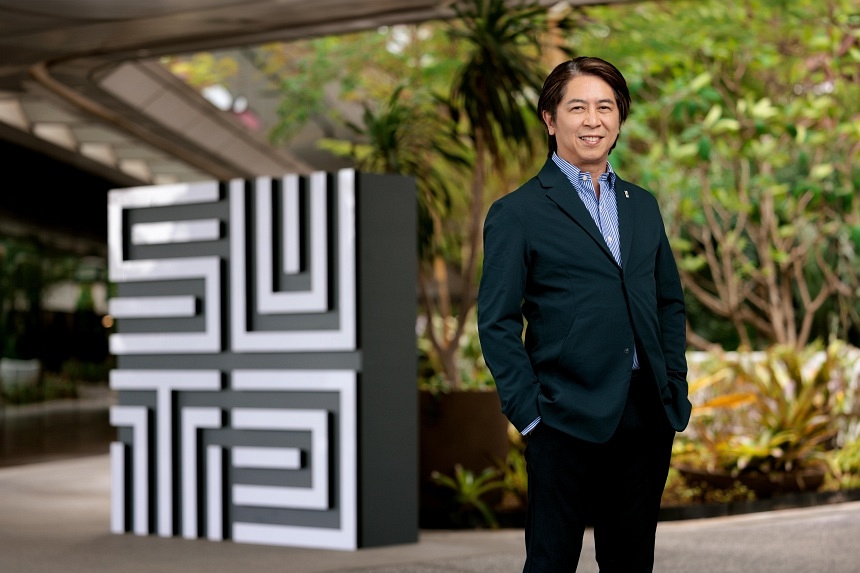
Professor Tai Lee Siang, veteran architect and urban designer by training, believes that if AI is used cleverly, it can speedily cut through many unknowns. Goh Ruoxue SINGAPORE - The unique convergence of artificial intelligence (AI) and design is a game-changer enabling a larger pool of young talent to become innovators, said Singapore University of Technology and Design (SUTD) deputy president and chief innovation and enterprise officer Tai Lee Siang. “Singapore is a small country – we don’t have infinite resources to produce things, let alone just design,” explained Prof Tai, who sits as the chairman of the judging panel for the newly launched Design AI and Tech Awards (Daita) jointly organised by The Business Times and SUTD.
“This (leveraging design and technology) can make manufacturing even more precise, more efficient, so that we don’t have to depend on either big land space or a huge number of unskilled labour, and we can produce very high-quality products and solutions that benefit society and bring a new dimension of economic growth.” Daita aims to encourage innovators from all enterprises – startups, small and medium-sized enterprises (SMEs) and large corporations – to harness design and technology to develop ground-breaking solutions that tackle real business challenges. The veteran architect and urban designer by training told BT that since about eight years ago, SUTD – founded 15 years ago – had already taken cognisance of emerging AI.

But it was not yet mature then, the technology was young, and there was a lack of suitable context for it to find applications, he said. The autonomous university – one of the six in Singapore – realised sometime in 2017 or 2018 that its design process and technology formation could do with such a booster, and SUTD pioneered what he describes as the “first-of-its-kind” degree programme known as design and artificial intelligence. But AI is just one of the many technologies that Daita will focus on.
“Technology is never in silos; AI is never operating alone by itself,” he explained. “We hope to see an integration of AI with other technologies, other disciplines – such as humanities, arts and social sciences, geography and history – and manifest in different forms.” Award submissions, now open, will be assessed across six criteria: design-thinking process and strategies; originality; utilisation of AI and advanced technologies; ethical consideration and sustainability; aesthetic and functional qualities; and quantitative and qualitative impact.
The six touchstones are weighted equally in hopes that contenders use the opportunity to address a myriad of factors rather than simply trying to score higher in one pillar, said Prof Tai. “My personal take is that if we use AI cleverly, it can speedily cut through some of these unknowns,” he said. “Unknown to us, but actually, there is known data out there and that’s where AI can help us create products and solutions that reduce carbon emissions yet, at the same time, manage the cost of production, uncertainties and risks of some of these new creations.
” His word of advice for potential participants of the awards: Watch the size of the submission. “As a start, look at something scalable and, in terms of AI application, something that is more human-scale allows us to appreciate its real benefits, versus something that is so huge that we can only see it in astronomical figures, but can’t really feel its impact on society.” Impact is key Across the board, several other judges agreed that impact is the order of the day.
“I would be particularly excited to see real-world impact – submissions that demonstrate practical applications solving actual design challenges,” said Laurence Liew, director for AI Innovation at AI Singapore. AI Singapore is a multi-party effort launched in 2017 between various economic agencies and academia to accelerate local AI adoption by the industry. The focus would be on deployable solutions rather than simply just proof-of-concepts, he said.
End-to-end solutions that demonstrate a comprehensive understanding of the entire AI lifecycle – from data collection and model development to deployment and maintenance – would earn brownie points with him as well. Submissions that demonstrate practical applications solving actual design challenges are among those that AI Singapore’s director for AI Innovation Laurence Liew hopes to see from the awards. PHOTO: SUTD As for GreenA Consultants senior partner Farizan d’Avezac De Moran, she noted that beyond just having an idea that leaves a marked effect on society, contenders must also be able to communicate that impact clearly.
“If they are proposing an integration platform, they need to be able to articulate for what and why, and, if possible, address situations on the ground,” she explained. Simply telling the judges that this is a great product would not cut it, said Farizan. Contenders must be able to articulate the impact of their submissions clearly, says GreenA Consultants’ senior partner Farizan d’Avezac De Moran.
PHOTO: SUTD Symbiosis of tech and design Positive impact aside, Dawn Lim, the executive director of national design agency DesignSingapore Council, also has her eye on submissions that tackle issues arising from the use of technology. Examples include projects promoting inclusivity, mental health and the ethical use of AI. “It is important to remember that technology still needs human-centric-driven solutions to harness its potential, address its pitfalls and prioritise our well-being,” said Lim.
Initiatives such as Daita showcase the symbiotic relationship between the fields of design and technology, she added. “It is not only a platform to celebrate the achievements of the winners, but a valuable opportunity for the cross-sharing of best practices from organisations which have leveraged technology to develop better solutions through design.” DesignSingapore Council executive director Dawn Lim believes it is important to remember that technology still needs human-centric-driven solutions to harness its potential, address its pitfalls and prioritise human well-being.
PHOTO: PENORAMIC PUBLISHING Said BT editor Chen Huifen, who is also on the judging panel: “We are looking for enterprises that apply AI in their businesses – be it in work processes, business models, or revenue streams – to drive growth. “AI enablers, SMEs and large enterprises are all welcome to participate, as long as they believe they have used AI intelligently to create impactful, measurable outcomes that set them apart in their industry.” Application details Applications for Daita are currently open, and will close on Dec 31 this year.
There are three award categories: Product Design, System Design and Spatial Design. A top prize will be awarded to one solution in each category, and winning contenders will be invited to a presentation event. More information can be found here.
Join ST's Telegram channel and get the latest breaking news delivered to you. Read 3 articles and stand to win rewards Spin the wheel now.













